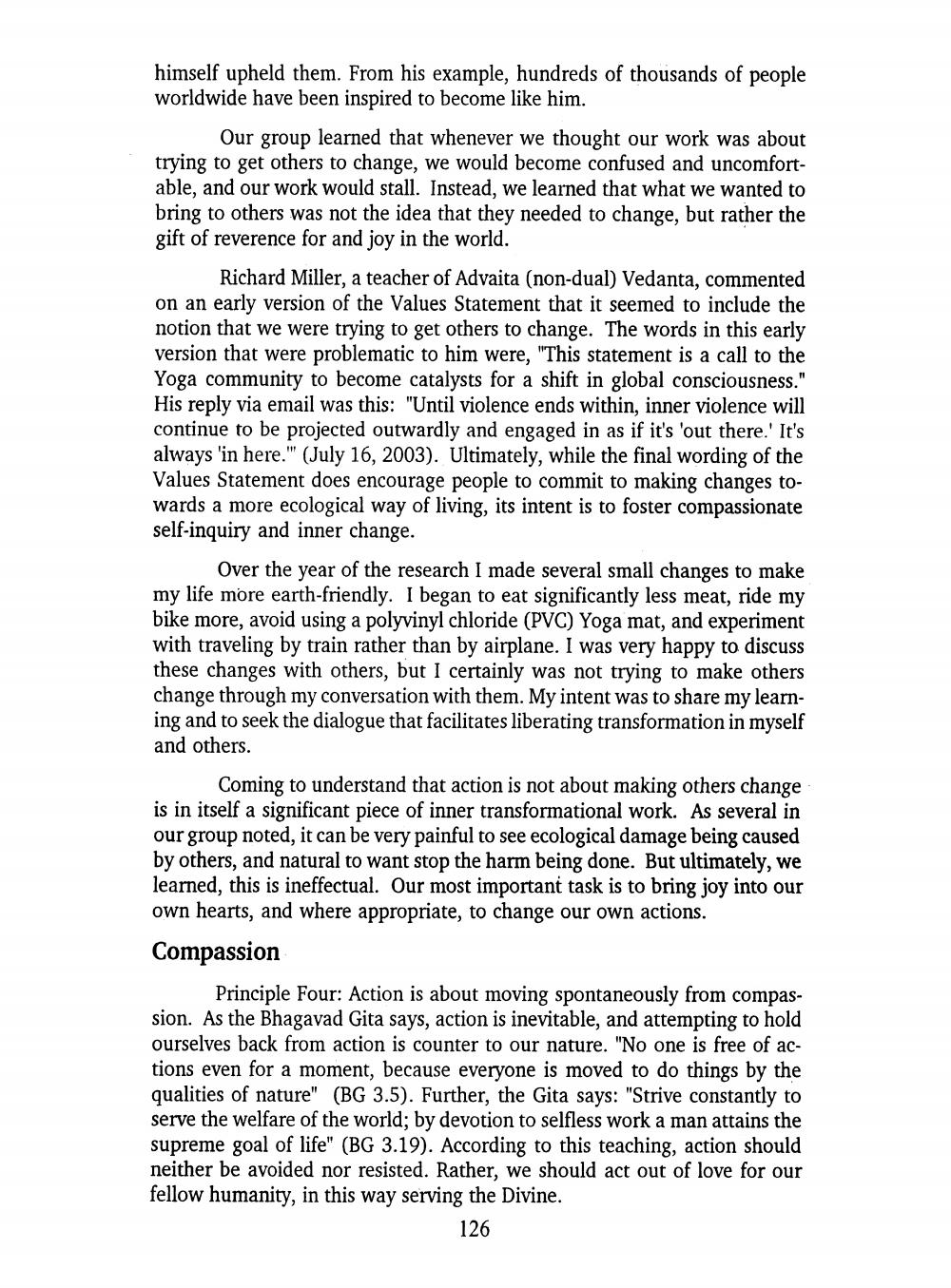________________
himself upheld them. From his example, hundreds of thousands of people worldwide have been inspired to become like him.
Our group learned that whenever we thought our work was about trying to get others to change, we would become confused and uncomfortable, and our work would stall. Instead, we learned that what we wanted to bring to others was not the idea that they needed to change, but rather the gift of reverence for and joy in the world.
Richard Miller, a teacher of Advaita (non-dual) Vedanta, commented on an early version of the Values Statement that it seemed to include the notion that we were trying to get others to change. The words in this early version that were problematic to him were, "This statement is a call to the Yoga community to become catalysts for a shift in global consciousness." His reply via email was this: "Until violence ends within, inner violence will continue to be projected outwardly and engaged in as if it's 'out there.' It's always 'in here." (July 16, 2003). Ultimately, while the final wording of the Values Statement does encourage people to commit to making changes towards a more ecological way of living, its intent is to foster compassionate self-inquiry and inner change.
Over the year of the research I made several small changes to make my life more earth-friendly. I began to eat significantly less meat, ride my bike more, avoid using a polyvinyl chloride (PVC) Yoga mat, and experiment with traveling by train rather than by airplane. I was very happy to discuss these changes with others, but I certainly was not trying to make others change through my conversation with them. My intent was to share my learning and to seek the dialogue that facilitates liberating transformation in myself and others.
Coming to understand that action is not about making others change is in itself a significant piece of inner transformational work. As several in our group noted, it can be very painful to see ecological damage being caused by others, and natural to want stop the harm being done. But ultimately, we learned, this is ineffectual. Our most important task is to bring joy into our own hearts, and where appropriate, to change our own actions.
Compassion
Principle Four: Action is about moving spontaneously from compassion. As the Bhagavad Gita says, action is inevitable, and attempting to hold ourselves back from action is counter to our nature. "No one is free of actions even for a moment, because everyone is moved to do things by the qualities of nature" (BG 3.5). Further, the Gita says: "Strive constantly to serve the welfare of the world; by devotion to selfless work a man attains the supreme goal of life" (BG 3.19). According to this teaching, action should neither be avoided nor resisted. Rather, we should act out of love for our fellow humanity, in this way serving the Divine.
126




